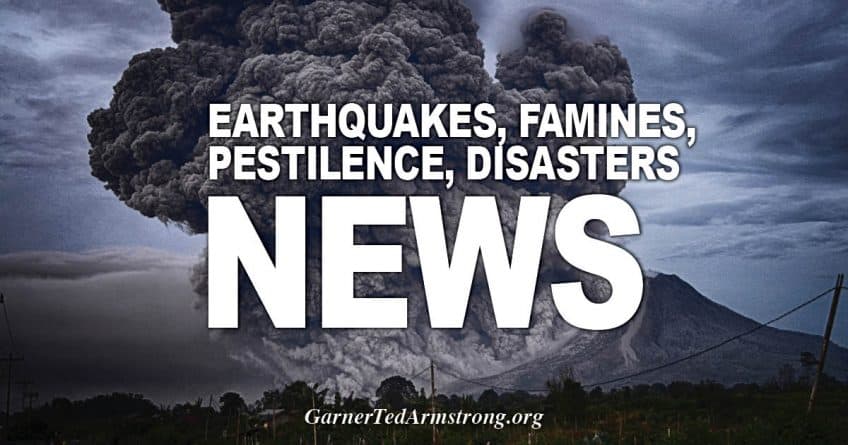A nationwide cholera epidemic in Sudan is expected to worsen during the current rainy season while authorities continue to deny the disease’s existence, the Central Committee of Sudanese Doctors said.
The Independent Central Committee of Sudanese Doctors, who organized national demonstrations last year against poor hospital conditions, cited 22,000 cholera cases and 700 fatalities since late May 2017. This figure is comparable to that of the National Epidemiological Corporation that cites 23,766 infections and 820 deaths over the same period.
In comparison, Sudan’s health ministry refuses to admit the outbreak exists, referring to the epidemic as “acute watery diarrhoea” and estimates 16,000 cases and 265 deaths have taken place since August last year.
At the height of the rainy season, where access to clean water and adequate sanitation is limited, Sudan’s doctors say they lack adequate health facilities to contend with the crisis. In some areas, schools are used as isolation centers for cholera patients, a practice doctors say inadequately quarantines the disease and contributes to cholera spreading further.
“Currently the hospitals don’t have the proper intravenous medications,” said Husam El Amin, the committee’s spokesperson and assistant general surgeon at Bahri Educational Hospital in Khartoum. “Incredibly, patients have to go to buy them [intravenous medication] from the black market themselves –at an exorbitant price.”
Conditions outside the capital Khartoum are worse.
In Darfur’s internally displaced camp, Kalma, 42 people have died of cholera over the past two months, 539 others are infected, news reports said. Other parts of Sudan with poor acces to drinking water are also affected by the epidemic, namely: White Nile, Red Sea and Gedarif states. Roughly 31% of Sudan’s drinking water comes from sources contaminated with industrial, domestic and commercial waste, the UN reports.
In denial
Sudanese doctors and activists have criticised the limited response from Khartoum and international actors and call on nationwide measures to curb further infection. But the government continues to downplay the epidemic and have targeted those who those who speak out about the crisis. Authorities detained journalist Ammar El-Daw in April, for instance, after reporting the outbreak in Gedaref State. In June, health officials dismissed Omdurman Emergency Hospital Director Dr. Hussein Aka for refusing to remain silent about the epidemic.
Government denial of cholera in Sudan is not a new concept. Relief workers in 1985 estimated around 15,000 Sudanese were infected by a cholera outbreak within the country. Under Prime Minister Dr Al-Jazuli Daf’allah, a physician, the epidemic was a “small outbreak of gastroenteritis [and] well under control.”
“The government needs to admit it cannot deal with the outbreak and call for help outside of Sudan,” El Amin told Nuba Reports. Even authorities admitting to the origins of the cholera epidemic poses a challenge. The health ministry claimed the outbreak originated from South Sudanese refugees in White Nile State. “Of course this is not correct,” El Amin said. “Although there were infections in South Sudan, it first appeared in White Nile State in the Umm Jar area as well as in Kosti, Rabak, Gitena –-all areas outside the refugee settlements.”
Perhaps fearing a repeat of 2009 where Sudanese authorities expelled 13 foreign aid bodies, international health organisations are following Khartoum’s lead in denying the existence of the disease. The UN World Health Organisation, the UN Office for the Coordination of Humanitarian Affairs and the U.S. Agency for International Development continue to refer to the disease as “acute watery diarrhea” despite considerable medical proof suggesting otherwise. The head of the UN’s World Health Organisation, Dr. Tedros Adhanon Ghebreyesus, has a history of cholera-denial, having repudiated three suspected outbreaks in his home country, Ethiopia. This may explain why the international response has been relatively limited to treating refugee cases in White Nile State, according to the Assessment Capacities Project (ACAPS) a data-led organisation that assists humanitarian interventions.
The exception: Nuba Mountains
Interestingly, the rebel controlled areas of the Nuba Mountains in South Kordofan State appear to be less affected than the rest of the country, according to local health workers and officials operating in the area. Local medical workers have estimated 160 cases of confirmed infection but all cases are taking place in the government-controlled areas of the state.
According to Abbas Ahmed, a local official in Al Abbasiya and Rashad, cholera has killed 51 people since the disease was first identified in August last year. The Secretary of Health for the rebel Sudan People’s Liberation Movement-North (SPLM-N) government, Tutu Turkash, says three more suspected cholera-related deaths took place in June in Lagawa and Dilling counties.
The SPLM-N controlled areas have remained largely free of the disease. “No, we haven’t gotten any cholera cases, thank God,” says award-winning surgeon Dr. Tom Catena from Gidel Hospital in the Nuba Mountains. “Our isolation has helped keep out cholera as there is very little movement between those areas (government-controlled areas) and here.”
But Turkash believes the areas are likely to see cases in the future and they lack medical supplies to contend with the crisis. The high malnutrition rates in the Nuba Mountains will increase vulnerability to infection, he said. According to the South Kordofan-Blue Nile Coordination Unit, an organization that monitors food insecurity in the two areas, roughly 75% of households surveyed in the central region of the Nuba Mountains reported no food in their homes.
Meanwhile, in other areas of the country, El Amin and the Central Committee of Sudanese Doctors continue to do their best despite opposition from authorities to cope with the cholera outbreak. “The health ministry does not want to help and does not want to let the Committee work either,” El Amin said. “If more rains fall, the number of infections is sure to rise significantly.”
Source: https://nubareports.org/amidst-official-denial-cholera-on-the-rise-in-sudan/
[Disclaimer]





